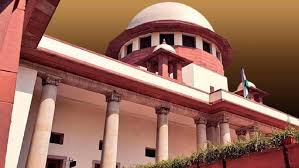The petitioners, practicing Advocates, have filed the present writ petition under Article 32 of the Constitution of India for a declaration that the designation of Advocates as Senior Advocates under Sections 16 and 23(5) of the Advocates Act, 1961 (hereinafter referred to as the ‘said Act’) as well as under Rule 2 of Order IV of the Supreme Court Rules, 2013, creating a special class of Advocates with special rights, privileges and status not available to ordinary Advocates is unconstitutional being violative of the mandate of equality under Artilce14 and Right to Practice any Profession under Article 19 as well as Right to Life under Article 21 of the Constitution of India. (Para 1)
There is no doubt that petitioner No.1 has had more than one brush with the law, though he claims to have become an advocate in the pursuit of his own case. Petitioner No.1 obviously crossed boundaries where the Court was compelled to take action under the Contempt of Courts Act, 1971 and debar petitioner No.1 from practicing in this Court. (Para 12)
We find the pleadings completely devoid of merit and justification, making allegations against all and sundry. This is more so in the conspectus of the large growth in the legal profession where a large number of first-generation lawyers have made their mark. These lawyers, some of them young ones, have come from National Law Schools and other prominent Law Schools. Instead of appreciating their contribution, petitioner No.1 has used his usual style of making allegations against all and sundry. (Para 13)
The classification of advocates as senior advocates and other advocates under Section 16 of the said Act is a classification made by the legislature. The legislature has a broad discretion to make such classifications, and while there must be a reason for classification, the reason need not be a good one. The Court can only review the classification if it is palpably discriminatory and arbitrary. (Para 15)
The classification of advocates under Section 16 of the said Act is a tangible difference established by the practice advocates have over decades, and the Court has devised a discernible and transparent mechanism to adjudicate the seniority of advocates in the profession. In order to be able to file any matter in the Supreme Court, an extensive and strict examination for an Advocates-on-Record has been provided. Not any advocate can walk in to file a matter. The objective is the efficiency of the system and proper assistance to the Bench as also to be in a better position to propagate the case of the client. Expertise and merit are the criterion. A lot of advocates prefer to remain as an Advocate-on-Record or advocates in the High Court and District Courts as the designation as Senior Advocate carries many inhibitions in the role that they can perform, i.e., they have to appear with an instructing counsel, not draft and file pleadings, and not deal with the litigants, etc. Thus, a special entitlement to address the Court is coupled with restrictions on many acts which they could otherwise perform as advocates. The designation as a Senior Advocate is a recognition of merit by the Court, and the two judgments passed in Indira Jaising[supra] cases referred to aforesaid have endeavoured to make the process more transparent. (Para 17)
The challenge that the aforesaid classification is violative of Article 14 of the Constitution is untenable since Article 14 permits the reasonable classification of people by the legislature. The seniority of advocates is premised on a standardised metric of merit aimed at forwarding the standards of the profession. Thus, the classification of advocates and the mechanism to grant seniority to advocates is not based on any arbitrary, artificial or evasive grounds. Such a classification is a creation of the legislature, and there is a general presumption of constitutionality, and the burden is on the petitioners to show that there is a clear transgression of the constitutional principles – something which they have miserably failed to discharge. This rule is based on the assumption, judicially recognized and accepted, that the legislature understands and correctly appreciates the needs of the people. (Para 18)
SUPREME COURT OF INDIA
2023 STPL(Web) 348 SC
[2023 INSC 918]
Mathews J. Nedumpara & Ors Vs. Union Of India & Ors
Writ Petition (C) No.320 Of 2023-Decided on 16-10-2023.
https://stpllaw.in/wp-content/uploads/2023/10/2023-STPLWeb-348-SC.pdf







